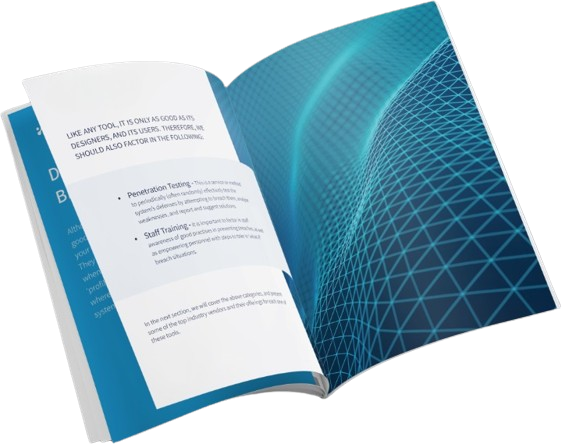If you’re thinking that applying for SBA loans for startups is a complex and daunting process, let’s simplify things for you.
Understanding the eligibility criteria is key to securing funding for your new venture. From citizenship requirements to financial eligibility and industry restrictions, each aspect plays a crucial role.
Stay tuned to uncover the essential details that can make or break your loan application success.
Key Takeaways
- Startups need profit, size standards, and good credit for SBA loans
- Documentation like passports and financial statements is crucial
- Financial stability, down payments, and compliance impact eligibility
- SBA loans offer lower down payments and vital capital for growth
SBA Loan Definition for Startups
When considering SBA loan eligibility for startups, it’s crucial to understand the definition of an SBA loan and how it applies to newly established businesses. Small Business Administration (SBA) loans are designed to provide financial assistance to small businesses that may struggle to secure traditional bank loans. These loans offer several benefits, including lower down payments, longer repayment terms, and competitive interest rates. For startups, accessing SBA loans can be a game-changer, offering the necessary capital to get off the ground and grow sustainably.
To qualify for an SBA loan as a startup, certain requirements must be met. Firstly, the business must operate for profit and fall within the size standards set by the SBA. Additionally, startups need to demonstrate a strong business plan outlining how the loan will be used and how the business intends to generate revenue. Lenders will also assess the personal credit history of the business owners, requiring a good credit score to increase the chances of approval.
Understanding the benefits of SBA loans and meeting the startup requirements are essential steps in securing financial support for your new venture. By aligning your business goals with the criteria set by the SBA, you can increase your eligibility for a startup loan and pave the way for future growth and success.
Citizenship and Legal Status Requirements
To further assess your eligibility for an SBA loan as a startup, it’s imperative to understand the specific citizenship and legal status requirements that must be met. When applying for an SBA loan, you must ensure that you meet the following criteria related to citizenship requirements and legal status verification:
- US Citizenship or Legal Residency: To qualify for an SBA loan, you must be a U.S. citizen or a Legal Permanent Resident. This is a fundamental requirement set by the Small Business Administration to ensure that the benefits of the loan program are allocated to individuals with a legal status in the country.
- Verification Documentation: As part of the application process, you’ll need to provide documentation to verify your citizenship or legal residency status. This may include a valid U.S. passport, birth certificate, or Permanent Resident Card (Green Card). Ensuring you have the necessary paperwork in order will streamline the verification process.
- Compliance with Immigration Laws: It’s crucial to adhere to all U.S. immigration laws and regulations to maintain your eligibility for an SBA loan. Any discrepancies in your legal status could impact your ability to secure funding for your startup venture.
Meeting these citizenship and legal status requirements is essential for your startup to be considered for an SBA loan, providing a solid foundation for financial support as you embark on your entrepreneurial journey.
Financial Eligibility Criteria
Meeting the financial eligibility criteria is a crucial step in securing an SBA loan for your startup. To qualify for startup funding through the Small Business Administration (SBA), you must meet certain financial requirements. The SBA focuses on ensuring that your business has the financial stability to repay the loan, reducing the risk for both you as the borrower and the SBA as the lender.
One of the primary financial criteria the SBA looks at is your credit score. A good credit score demonstrates your ability to manage debt responsibly and increases your chances of loan approval. Typically, a credit score of 680 or higher is considered favorable for SBA loans.
Moreover, the SBA requires startups to provide a detailed business plan that includes financial projections. These projections should outline how you intend to use the loan funds and how your business plans to generate revenue to repay the loan. Demonstrating a clear understanding of your startup’s financials is essential in proving your ability to meet the SBA’s financial eligibility criteria.
Additionally, the SBA may require you to contribute a certain percentage of the total loan amount as a down payment. This shows your commitment to the business and reduces the loan amount, making it more manageable for you to repay. Understanding and meeting these financial requirements is key to increasing your chances of securing an SBA loan for your startup.
Business Age and Industry Restrictions
Startups seeking SBA loans must adhere to specific business age and industry restrictions to qualify for funding support. When applying for an SBA loan as a startup, it’s essential to consider the following limitations:
- Industry Limitations: The Small Business Administration outlines certain industries that are ineligible for SBA funding. These industries typically include financial services, real estate investment, speculative businesses, and others. It’s crucial to ensure that your startup falls within the approved industry categories to meet the SBA’s eligibility requirements.
- Age Restrictions: The SBA often requires startups to have been in operation for a minimum period to qualify for loans. While specific age requirements can vary based on the type of loan and lender, startups are generally expected to have a track record of at least two years. Demonstrating a history of consistent operations can enhance your credibility as a borrower and increase your chances of securing SBA funding.
- Compliance Verification: To verify compliance with age and industry restrictions, the SBA may request documentation such as business registration certificates, tax returns, financial statements, and operational history. Ensuring that your startup meets these criteria and preparing the necessary documentation can streamline the loan application process and improve your chances of approval.
Documentation and Application Process
Considering the industry limitations and age restrictions for SBA loan eligibility, the documentation and application process play a crucial role in securing funding for your startup. Documentation requirements for SBA loans typically include personal background information, such as resumes, personal financial statements, business financial statements, personal and business tax returns, and a business plan outlining your startup’s operations and financial projections. Additionally, you may need to provide legal documents like business licenses, registrations, leases, and any contracts relevant to your business.
The step-by-step application process for an SBA loan involves gathering all necessary documentation, completing the SBA loan application form, and submitting it to an SBA-approved lender. The lender will review your application and documentation, assessing your creditworthiness, business viability, and ability to repay the loan. They may request additional information or clarification during this process.
Once your application is approved, the lender will work with you to finalize the loan terms and conditions. It’s essential to be thorough and accurate in your documentation to expedite the application process and increase your chances of securing the funding your startup needs. By following these steps diligently, you can navigate the documentation and application process for SBA loans successfully.
Frequently Asked Questions
Can Startups With No Prior Business Experience Qualify for SBA Loans?
Yes, startups with no prior business experience can qualify for SBA loans. By leveraging startup resources and funding options, you can access the necessary capital to fuel your business growth and seize opportunities.
SBA loans provide a pathway for new entrepreneurs to secure financing, even without extensive industry knowledge. With determination and a solid business plan, you can navigate the loan application process successfully.
Are There Any Specific Credit Score Requirements for Startups Applying for SBA Loans?
When it comes to credit score requirements and startup qualifications for SBA loans, it’s crucial to note that a good credit score can significantly boost your chances of approval.
The statistics show that startups with credit scores above 680 are more likely to secure SBA loans. Therefore, focusing on improving your credit score can be a strategic move to enhance your eligibility and increase your chances of obtaining the funding you need.
Are There Any Restrictions on the Type of Industries That Startups in Can Be in to Be Eligible for SBA Loans?
When it comes to SBA loans for startups, there are industry restrictions that can impact eligibility. Certain industries like gambling, lending, and speculative real estate development may not qualify.
However, most other industries are generally eligible as long as they meet the SBA’s startup qualifications.
It’s crucial to understand these restrictions and ensure your startup aligns with the SBA’s guidelines to increase your chances of securing a loan.
Can Startups With International Founders or Owners Qualify for SBA Loans?
Yes, startups with international founders or owners can qualify for SBA loans. The key factors for eligibility in this case include investor citizenship and the business structure.
As long as these criteria are met, SBA loans are accessible to startups with international connections. This flexibility allows a diverse range of entrepreneurs to benefit from the support offered by the SBA.
How Long Does the Application Process Typically Take for Startups Applying for SBA Loans?
When applying for SBA loans, the funding timeline and approval process are crucial. Typically, the application process for startups seeking SBA loans can take anywhere from several weeks to a few months. Factors such as the completeness of your application, responsiveness to requests for additional information, and the SBA’s current workload can influence the timeline.
Ensuring all required documents are ready and promptly responding to inquiries can help expedite the process.
Final Thoughts
Eligibility criteria for SBA loans for startups can be stringent yet rewarding. By meeting citizenship requirements, demonstrating financial stability, and adhering to industry restrictions, your startup can access valuable funding opportunities. The documentation and application process may seem daunting, but with careful preparation and attention to detail, you can navigate the requirements successfully. Remember, the potential benefits of securing an SBA loan for your startup far outweigh the initial challenges.












